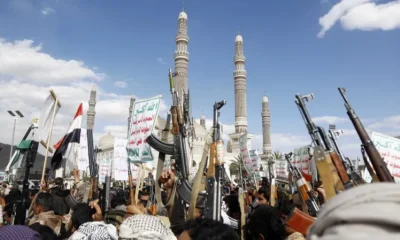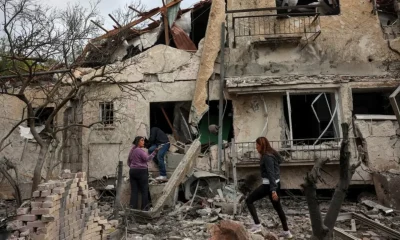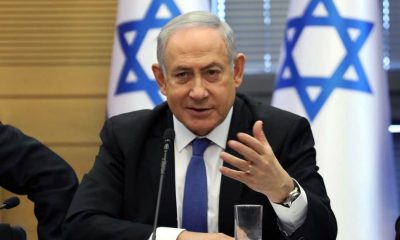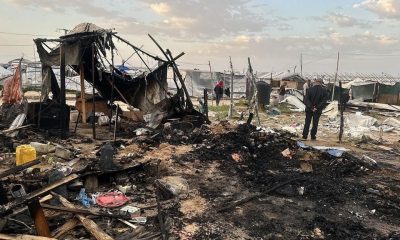International
Israeli Airstrikes Kill 15 Rescue Workers In Lebanon
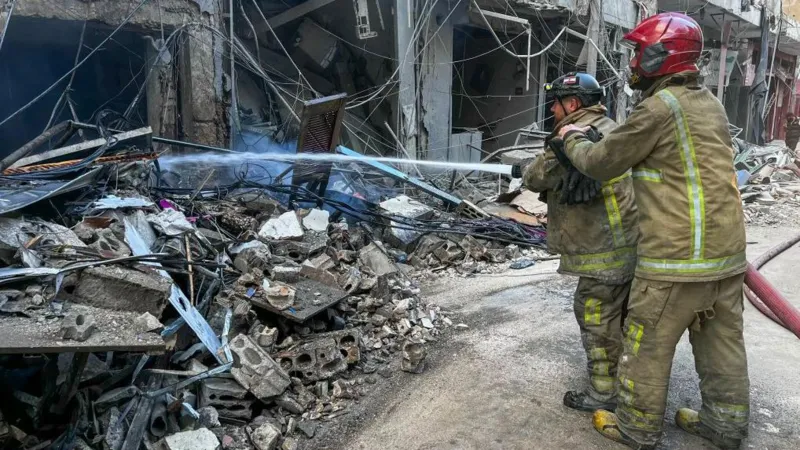
An Israeli airstrike on Thursday targeted an emergency response centre in northeastern Lebanon, killing at least 15 rescue workers in what officials have described as one of the deadliest assaults involving Lebanese emergency responders during the ongoing conflict.
The strike occurred in Douris, near Baalbek, demolishing a building belonging to the Lebanese government’s civil defence agency, which operates independently of the Iranian-backed Hezbollah. Among the casualties was Bilal Raad, the civil defence chief for Baalbek, according to regional governor Bachir Khodr.
EDITOR’S PICKS
- Electricity Meter Costs Rise Again As Deregulation Takes Effect
- Biden, Harris Set To Congratulate Trump On Presidential Win
- Thousands Of ‘Trained’ Combatants Ready To Fight Israel – Hezbollah Chief
The Israeli military has yet to comment on the incident, which Lebanon’s health ministry condemned as “barbaric.” The Lebanese civil defence agency handles critical emergency services such as search-and-rescue operations and firefighting.
In a separate incident on Thursday, another Israeli airstrike hit a civil defence centre in the southern town of Arab Salim, located in the Nabatieh region. According to the state-run National News Agency (NNA), the attack killed six people, including five paramedics.
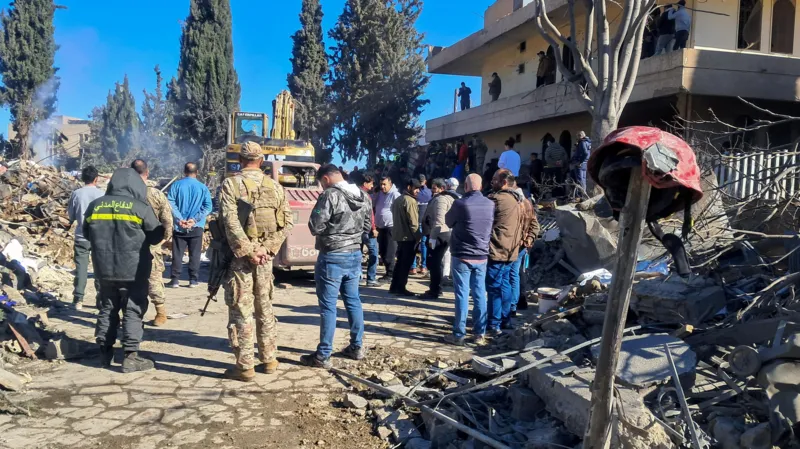
The Lebanese health ministry reports that at least 192 emergency and healthcare workers have been killed in Israeli airstrikes since the conflict escalated with Hezbollah in September. Recent days have seen intensified Israeli air raids across Lebanon, including sustained strikes on the southern suburbs of Beirut, a Hezbollah stronghold. Friday marked the fourth consecutive day of airstrikes in the area following evacuation orders issued by the Israel Defence Forces (IDF), which claims to target Hezbollah-linked infrastructure.
The escalation coincides with renewed international diplomatic efforts to secure a ceasefire. American officials have presented Lebanon with a preliminary proposal, though details remain sparse.
The Lebanese government insists that any agreement must adhere to United Nations Resolution 1701, which ended the 2006 war between Hezbollah and Israel. The resolution mandates the removal of Hezbollah fighters and weapons from areas between the Blue Line—the unofficial Lebanon-Israel border—and the Litani River, approximately 30 kilometres (20 miles) from the boundary. A potential deal could involve deploying additional Lebanese army troops to the region and implementing a monitoring mechanism. However, Israel demands the right to intervene within Lebanon if the agreement is violated—an expectation that neither Hezbollah nor the Lebanese government appears willing to accept.
FURTHER READING
- Hezbollah Launches 120 Projectiles From Lebanon Into Israel
- Full List of Chief of Army Staff Who Died in Office
- ECOWAS Court Partners ICRC To Domesticate International Humanitarian Law
Hezbollah, while severely weakened by two months of intense Israeli airstrikes that have decimated much of its infrastructure and killed several key leaders, has reportedly regrouped. Analysts note that the group continues to launch daily attacks on northern Israel, albeit with reduced intensity compared to the early stages of the conflict.
During a visit by Iranian Supreme Leader advisor Ali Larijani, Lebanese Prime Minister Najib Mikati reiterated Beirut’s commitment to achieving a ceasefire and fully implementing Resolution 1701. Mikati emphasized that the resolution must be executed “in its entirety, without reinterpretations or amendments.” He also confirmed that negotiations to reach a mutual understanding were ongoing.
Click here to watch our video of the week:
Advertise or Publish a Story on EkoHot Blog:
Kindly contact us at ekohotblog@gmail.com. Breaking stories should be sent to the above email and substantiated with pictorial evidence.
Citizen journalists will receive a token as data incentive.
Call or Whatsapp: 0803 561 7233, 0703 414 5611


